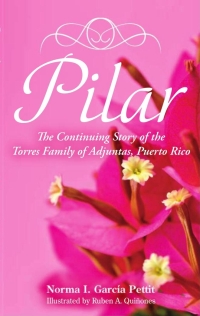Puerto Rican Idioms
One of my goals in writing Luisa was to enlighten readers about the uniqueness of Puerto Rican culture. One aspect of a culture is the language that is spoken. Idioms are an important element of any language and can reflect ways of thinking and behaving within a certain culture. When I was teaching English learners, I always included idioms in the curriculum because just knowing the literal meaning of words was not going to help the students achieve English language fluency. The children needed to know that “elbow grease” was not something that had to be washed off with soap and water, and “break a leg” was not wishing bodily harm to an actor.
You will find Puerto Rican idioms sprinkled throughout Luisa. One of the first ones that you will encounter is, “De una boda sale otra.” This means, “Out of one wedding comes another.” Certainly, many people today can say that they met their mate at a wedding, but back in the late nineteenth century this was even more commonplace, especially in the rural mountainous regions of Puerto Rico. Consider that with their lack of mobility and modern means of communication, their social interaction was limited to church and local gatherings for baptisms, weddings and funerals.
Another idiom used is, “A falta de pan se come galletas,” meaning, “When you don’t have bread you eat crackers.” This speaks to the resilient character of Puerto Ricans. When you don’t have exactly what you want, you make do with what you have. A similar saying in English is, “When life gives you lemons, make lemonade.” Don’t complain; just adapt.
“¿Dónde irá el buey que no are?” means “Where will the ox go and not plow?” This refers to the concept that some people are not going to change their behavior, just like a zebra can’t change its stripes. In one scene of the book, Luisa and her family are wondering what will happen to a certain unsavory character that moves away. Someone speaks this idiom to indicate that the guy will probably still be a rascal wherever he goes.
An idiom that I used to hear a lot when I was living in Puerto Rico is “No hay mal que por bien no venga” - Something good always comes out of bad things. Isn’t that the truth? The English counterpart to this saying might be “Every cloud has a silver lining.”
One of my favorite idioms that I use to this day is, “No se puede tapar el cielo con la mano.” Literally it is “You can’t cover up the sky with your hand.” Try it! You can’t! It means that even if you try to cover up something with lies or evasions, the truth eventually emerges. In English we say that “it all comes out in the wash.” One of the characters in Luisa says, “No se puede tapar el cielo con la mano” to recognize that there is no way to cover up the embarrassing situation that his family is experiencing.
Another favorite saying of mine is, “El vago trabaja doble” – the lazy person works twice. Think about it: if you crumple up a sheet of paper and attempt to toss it into a wastebasket but miss, you have to get up, retrieve the wadded up paper from the floor and deposit it into the trash basket. You have expended twice the effort! Full disclosure: I did not use this particular idiom in Luisa. Hmmm. Maybe it will show up in the sequel, though. Heh heh!
